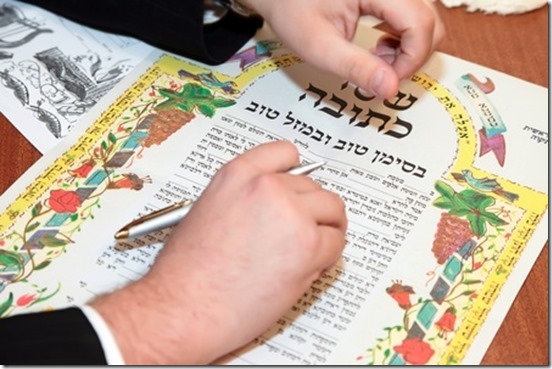 It is almost Shavuot, just a few more days and we will be in Jerusalem to celebrate this special day. What a wonderful privilege. On this day many years ago, tradition has it that the Torah was given at mount Sinai. This is based on Ex 19:1, which states that the Torah was given in the third month. This is a tradition for if you were to calculate the days from the first Passover to when YHVH spoke the Ten Words, it is approximately 63 days, but this said, it still remains a meaningful tradition.
It is almost Shavuot, just a few more days and we will be in Jerusalem to celebrate this special day. What a wonderful privilege. On this day many years ago, tradition has it that the Torah was given at mount Sinai. This is based on Ex 19:1, which states that the Torah was given in the third month. This is a tradition for if you were to calculate the days from the first Passover to when YHVH spoke the Ten Words, it is approximately 63 days, but this said, it still remains a meaningful tradition.
Also, on Shavuot the Ruach ha Qodesh, the Holy Spirit, was given to indwell those who believed. You can read the book of Acts for more details on this. YHVH gave us the Torah, His instructions for living and he gave us a Helper to help us every step of our way.
Let’s just go back to the giving of the Torah. On the day YHVH gave His Torah, He betrothed Israel. The Torah (YHVH’s instructions or commandments) is similar to a Ketubah, it is the conditions of the covenant He has made with Israel. You may wonder what a Ketubah is. In ancient times, when a couple betrothed, they made vows to each other, much like the vow a man and woman makes to each other on their wedding day in our time. This document, containing the vow is called the Ketubah in Hebrew and serves as a marriage contract. In the Ketubah, the conditions of the covenant are written. Betrothal, in ancient times, was considered as binding as the marriage itself, and marriage was and still is considered a covenant. This is YHVH’s promise if the covenant was kept:
Exodus 19:5-6
5 Now then, if you will indeed obey My voice and keep My covenant, then you shall be My own possession among all the peoples, for all the earth is Mine; 6 and you shall be to Me a kingdom of priests and a holy nation.” These are the words that you shall speak to the sons of Israel.
Renewal of our commitment
We, as being a part of Israel, are also to keep these conditions of the covenant. However, we are human and often fail YHVH by being disobedient to Him. For this reason, every year, when we celebrate Shavuot, it is as if we renew our marriage vows to YHVH. We do this by making a proclamation. Did you know that we are commanded to make a proclamation on this day? We have written articles about this previously: What are you proclaiming on Shavuot? and All that YHVH has spoken we will do! – a message for Shavuot and about how we have done it Trip Report – Shavuot – Our proclamation and Shavuot in Jerusalem 2013 – I will be your Elohim and you shall be My people.
Shavuot is very significant if you view it from this perspective, as we can renew our commitment to YHVH on this day. I also believe that once is not enough. We are human beings and by nature we transgress these conditions YHVH has set for us.
Two years after we started renewing our covenant with YHVH at Shavuot, we learned that the Essenes made a covenant renewal ceremony every year on Shavuot just like we are doing. They repented of their sins and the sins of their fathers; the priest pronounced the blessings for obedience and curses for disobedience. The whole ceremony was made personal as each individual is personally responsible for himself. You can read all the detail in the article Who were the Essenes? It was fascinating to learn this. So, the Essenes are not our inspiration for doing this, we believe we were led by YHVH to do this. You can read how it all came together the first time in our 2012 trip report Trip Report – Shavuot – Our proclamation.
This is just a bit of background. I was not planning to write something for Shavuot, but every study I did the last couple of weeks, YHVH kind of brought me back to this, so therefore this post. Two of our previous studies National and Personal redemption, both are required and Why does evil seem to prevail? Both prompted me in this direction.
Reflection required
You see, in order for us to renew our commitment to YHVH, we need to reflect a little on our lives and on our relationship with YHVH. When Y’shua was asked what the most important commandment was, He answered the following.
Matthew 22:37-40
37 And He said to him, “You shall love YHVH your Elohim with all your heart, and with all your soul, and with all your mind.” 38 This is the great and foremost commandment. 39 The second is like it, “You shall love your neighbor as yourself.” 40 On these two commandments depend the whole Law and the Prophets.
Our focus should be on our relationship with YHVH, which we live out in loving obedience to Him. Next to this is how we relate to the people around us. YHVH has given us instructions on doing this also. Consider this, when we sin, we sin against ourselves and against others, but most importantly, we sin against YHVH.
When we sin, we sin against YHVH
This is what David wrote about his sin.
Psalm 51:4
4 Against You, You only, I have sinned And done what is evil in Your sight, So that You are justified when You speak And blameless when You judge.
When Abimelech took Sarah from Abraham, thinking she was his sister, YHVH spoke to him in a dream.
Genesis 20:6
6 Then Elohim said to him in the dream, “Yes, I know that in the integrity of your heart you have done this, and I also kept you from sinning against Me; therefore I did not let you touch her.
This is what Joseph said when Potiphar’s wife tried to seduce him.
Genesis 39:9
9 There is no one greater in this house than I, and he has withheld nothing from me except you, because you are his wife. How then could I do this great evil and sin against Elohim?
These three examples show us that we sin against YHVH, when we sin. When we sin, we transgress YHVH’s commandments. For example, when we speak evil of another person, we may think we are only doing it to them. But, YHVH said in Prov 8:13, He hates pride and arrogance, the evil way and the perverted mouth. Speaking evil of another is connected to all these. So, even when we think we have done something to another person, we have sinned against YHVH. In Exodus 20:7, we are commanded not to bring the name of YHVH in vain and this also means that we are not to bring His name into disrepute. What happens when a believer does what is wrong by lying for example? People say, if this is how a believer in YHVH acts, we don’t want any part of that religion. That brings YHVH’s name into disrepute.
However, our sin does affect other people too. We tend to think of our sin as something that belongs to us and that only affects us. However, others will share in the consequences of our sin. Let’s find a few scriptural examples.
The first example that came to mind was about Uzzah, son of Abinadab, touching the ark (2 Sam 6:7.) He died immediately, even though he was trying to prevent the ark from falling. Why did he have to die if he did it with good intent? The Torah instructs that the Ark is to be carried by its poles by two priests (Num 7:9), it is not to be transported on a wagon. David sinned by putting the ark on a wagon. It became unstable, Uzzah tried to prevent it from falling, but he paid for it with his life. If David didn’t sin, Uzzah would not have died.
I am not picking on David here, but another good example is his sin with Bathsheba. Her husband was killed with some of Davids servants and, their innocent first-born son. His other children and wives were also affected by this sin (2Sam 12:11). David repented of his sin, but the consequences took place just as Nathan prophesied.
There is no such thing as a secret sin, all will be revealed.
Luke 12:2-3
2 But there is nothing covered up that will not be revealed, and hidden that will not be known. 3 Accordingly, whatever you have said in the dark will be heard in the light, and what you have whispered in the inner rooms will be proclaimed upon the housetops.
We are to remember this and conduct ourselves in accordance with YHVH’s instructions. When we sin, we sin against YHVH and our sin affect others as well. It is really not worth it. Ask YHVH to show you the areas in your life where you have failed, and repent. Turn away from sin and renew your commitment to YHVH. Take these last few days of the counting of the Omer to do introspection and repent and you will be free from that which is holding you back. Free to re-dedicate yourself to the one and only Elohim. The Maker of heaven and earth and all that is in it.
How are we to do this?
We, human beings tend to forget easily. For this reason it is a good idea to be reminded of the consequences of obedience and disobedience. There are two passages in Scripture that specifically deals with this. Leviticus 26 is about covenantal faithfulness, or in other words, obedience to YHVH’s instructions, specifically in the context of the Sabbaths. We find here detail on the blessings for obedience and the penalties for disobedience.
Then, when Israel came into the land, YHVH instructed them to stand on mount Ebal and mount Gerazin and pronounce blessings and the curses. These blessings and curses are more of a general nature and are written in Deuteronomy 27:15-28:68.
I am not saying we are to do this, but go and read through these and think about this. Use this as a measuring stick to determine where you are at, but also as a motivation for where you want to be. Use all this and incorporate it in your celebration or preparation for this day.
The festivals are for the nation, but every nation is build up from individuals. It starts with each of us. Be wise and do this for the days are evil and we are to make the most of our time.
Ephesians 5:15-16
15 Therefore be careful how you walk, not as unwise men but as wise, 16 making the most of your time, because the days are evil.
Do not be part of the darkness, but be the light YHVH has called you to be. May you have a blessed feast day.










Leave a Reply to marianne greyling Cancel reply